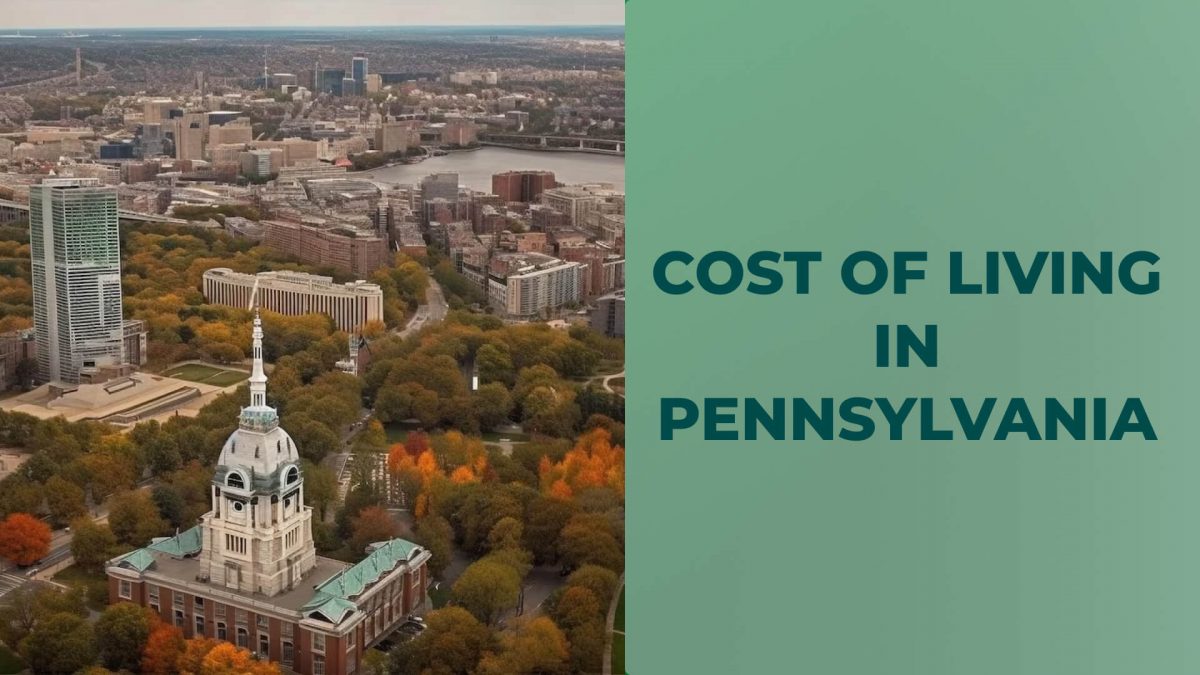Pennsylvania, known for its rich history and picturesque landscapes, offers an exceptional quality of life that attracts both families and young professionals. Whether it’s the bustling streets of Philadelphia, the charming suburbs of Harrisburg, or the serene rural areas, Pennsylvania provides a blend of city excitement and country peace. The state boasts an extensive transport system, impressive education institutions, diverse cultural attractions, and plentiful job opportunities, particularly in sectors like healthcare, education, and finance.
Housing Costs in Pennsylvania
Housing is a significant part of the cost of living equation. In Pennsylvania, housing prices can vary drastically between urban and rural areas. As of 2023, the median home price in Pennsylvania stands around $230,000, which is below the national average. Renters can also find good deals, with the average monthly rent for a one-bedroom apartment in a city center being around $1,200, while suburban or rural areas can see costs as low as $800 per month. Whether you plan to rent or buy, be sure to consider property taxes, which can vary across the state.
Food and Groceries Expenses
Pennsylvania residents spend close to the national average on groceries. For example, a gallon of milk costs around $3.50, a dozen eggs about $2.50, and a loaf of bread approximately $2.50. Dining out is also a viable option for residents, with an average meal at an inexpensive restaurant costing around $15 per person, while a three-course meal for two in a mid-range restaurant is approximately $60.
Healthcare Costs
Healthcare costs in Pennsylvania tend to align closely with the national average. The average monthly health insurance premium for a single individual is around $400, although this can vary based on factors such as age and overall health. Out-of-pocket costs for medical services also vary, with a standard doctor’s visit costing about $110, and a trip to the emergency room costing upwards of $500, without insurance.
Transportation Costs
Transportation costs can take up a substantial portion of your monthly budget. The average price of a gallon of gas in Pennsylvania is about $3.00, while car insurance averages around $1,200 per year. If you prefer public transportation, a monthly transit pass in cities like Philadelphia or Pittsburgh typically costs around $100.
Utility Expenses
When it comes to utilities, the average monthly bill for a 915 sq ft apartment in Pennsylvania is around $150, covering basics like heating, cooling, electricity, and water. Internet services average around $60 per month, but costs can vary based on the speed and plan chosen.
Education Expenses
Pennsylvania is home to an extensive public school system and renowned universities like the University of Pennsylvania and Penn State. While public schools are funded by taxes and therefore free to attend, private school tuition varies widely, with costs ranging from $5,000 to $30,000 per year. For higher education, tuition fees can range from $10,000 per year for in-state students at public universities to over $50,000 at private institutions.
Lifestyle and Entertainment Costs
Pennsylvania offers a wide array of entertainment options. A regular adult movie ticket costs around $12, a monthly gym membership averages $30, and tickets for popular tourist sites like the Liberty Bell or Gettysburg National Military Park are usually under $20. Outdoor activities such as hiking, fishing, or boating can be cost-effective ways to enjoy the state’s natural beauty.
Summing Up: Is Pennsylvania Affordable?
With its blend of urban and rural living, Pennsylvania offers something for everyone. While certain costs, such as housing and healthcare, can be quite affordable, other expenses, like education and transportation, might be higher. However, when considering the state’s rich history, quality of life, and employment opportunities, Pennsylvania represents an attractive choice for many looking to relocate. As always, it’s important to assess your personal budget and lifestyle preferences when deciding if the Keystone State is the right fit for you.

